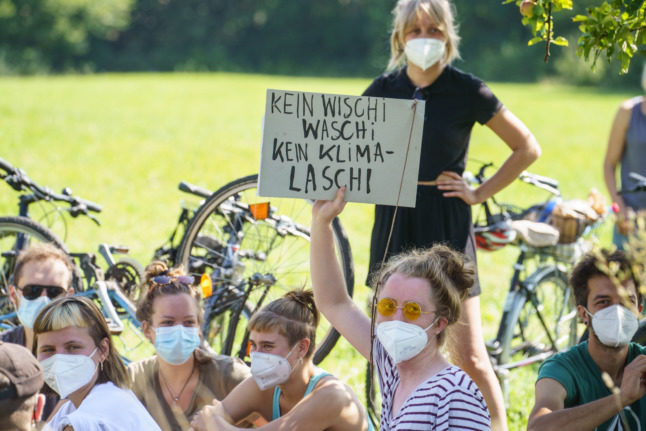The plaintiffs are basing their case on a sensational verdict by Germany’s constitutional court in April which found that Germany’s plans to curb CO2 emissions were insufficient to meet the targets of the Paris climate agreement and placed an unfair burden on future generations.
In a major win for activists, Chancellor Angela Merkel’s federal government then brought forward its date for carbon neutrality by five years to 2045, and raised its 2030 target for greenhouse gas reductions.
READ ALSO:
- ‘Exclamation mark for climate protection’: How Germany is reacting to top court’s landmark ruling
- ‘No longer pushing the burden into future’: German govt approves more ambitious climate targets
On Monday, 16 children and young adults began proceedings against the regions of Hesse, Saxony, Saxony-Anhalt, Mecklenburg-Western Pomerania and Saarland, with support of environmental NGO Environmental Action Germany (DUH).
They are charging that none of the states targeted by the legal action have passed sufficiently strong climate legislation at the local level, according to DUH.
“The federal government can’t succeed on its own,” lead lawyer Remo Klinger said in a press conference, highlighting state competence in the area of transport.
DUH worked closely together with the youth climate movement Fridays For Future to find activists willing to front the challenges, the group said.
Seventeen-year-old plaintiff Alena Hochstadt said the western state of Hesse, known for its Frankfurt banking hub, had always been her home but she feared having “no future here”.
Concern about the risk of “floods, storms and droughts” led her and other campaigners to seek “a legal basis for binding climate protection”.
READ ALSO: Climate change made German floods ‘more likely and more intense’
Hesse’s ministers for climate and the economy said they were “surprised” by the announcement.
“DUH clearly has not yet understood that we in Hesse are well ahead,” Priska Hinz and Tarek Al-Wazir said in a joint statement, drawing attention to an energy future law from 2012, before the Paris climate agreement.
In July, DUH-supported activists took the states of Bavaria, North Rhine-Westphalia and Brandenburg to court on similar grounds.



 Please whitelist us to continue reading.
Please whitelist us to continue reading.
Member comments